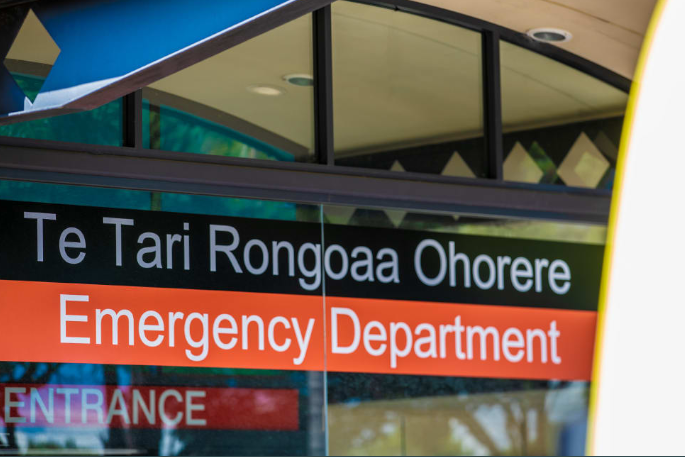Emergency department doctors are calling for political parties to commit to 24 hour security staff in every department across the country.
The Australasian College for Emergency Medicine has issued a list of fixes in staffing, data, security, mental health and aged care management that it said were crucial to restore struggling emergency departments.
A senior emergency clinician quoted in the college's report says a lack of staffing and beds was overflowing into emergency departments with dangerous consequences.
"There are so many staff, patients, carers and whānau exhibiting stress behaviours. This can cause breakdowns in communication and processes and can lead to aggression and violence. Staff start to yell at each other for basic requests. Patients and relatives often get angry and frustrated if they perceive they are not receiving timely care," the clinician says.
College chairperson Dr Kate Allan says staff were facing significant violence and aggression in EDs and the problem was increasing.
"All people must be safe to receive, deliver and support care in emergency departments, and violence or aggression cannot be accepted. 24/7 security staff posted at every ED, integrated and appropriately trained to best support staff, patients, whānau and visitors, can free up medical staff to focus on delivering crucial care," says Allan.
There were over 1.2 million presentations at ED's during last year and the number of people waiting longer than six hours to receive care was five times what would be expected from a well resourced health system.
That number had grown dramatically over the previous five years from less than 10 percent to nearly a quarter of patients presenting.
Allan says inadequacies across the health system were compounding wait-times and putting staff and patients in danger.
"Emergency doctors from across the motu tell me that there are simply too many sick and injured people needing care, and not enough skilled staff, hospital beds, mental health care, aged care and other resources to go around," Allan says.
In 2022 their were more than 650 instances when hospitals were operating at or beyond their full capacity.
Against a surging demand for specialist mental health care the number of beds in dedicated facilities was declining leading to a growing number of people becoming stuck in emergency departments for long waits.
Beds in mental health and addiction facilities had dropped by 10 percent in the last five years while the number of ED presentations for mental health related reasons had leapt from less than 20,000 to nearly 30,000 during last year.
A similar effect was occurring for elderly people awaiting beds in aged care homes.
The college's report says at any time there were approximately 150 elderly people stuck in hospitals waiting for a high level aged care bed to become available.
The doctors were calling for security staff to be posted 24 hours a day at every ED in the country.
They says parties contesting the 2023 election should also commit to the urgent delivery of 150 high-level aged care residential beds, the fulfilling of the 2019 mental health budget's pledges to increase staffing in all mental health facilities and putting measures in place to boost and retain emergency care workforce staff numbers.
Hipkins uncertain 24/7 ED security 'required in every instance'
During a media briefing where Labour Party leader Chris Hipkins pledged more frontline police, he says staff safety was something that hospital management needed to take very seriously.
Hipkins says he was not convinced that 24/7 security staff were needed at all New Zealand emergency departments in every instance.
"But what we will do is work with the staff who are expressing legitimate concerns about their safety as to how we can best address that.
"If extra security is required of course we will work with the people who are running Te Whatu Ora, who are running the hospital, to make sure extra security is put in place where it's needed."
In the area of mental health, Hipkins says that the government had made good progress, but more work was needed to train the workforce in the mental health area.



0 comments
Leave a Comment
You must be logged in to make a comment.